When it comes to packaging orange juice, the choice of material can significantly impact flavor, shelf life, consumer health, and brand perception. While plastic has been a popular choice for years, an increasing number of beverage brands are shifting their focus towards glass bottles. This shift is driven by the advantages that glass offers in terms of quality, sustainability, and branding. In this guide, we will explore why glass bottles, specifically for orange juice, provide superior benefits over plastic counterparts.
Table of Contents
ToggleCONTENTS LIST
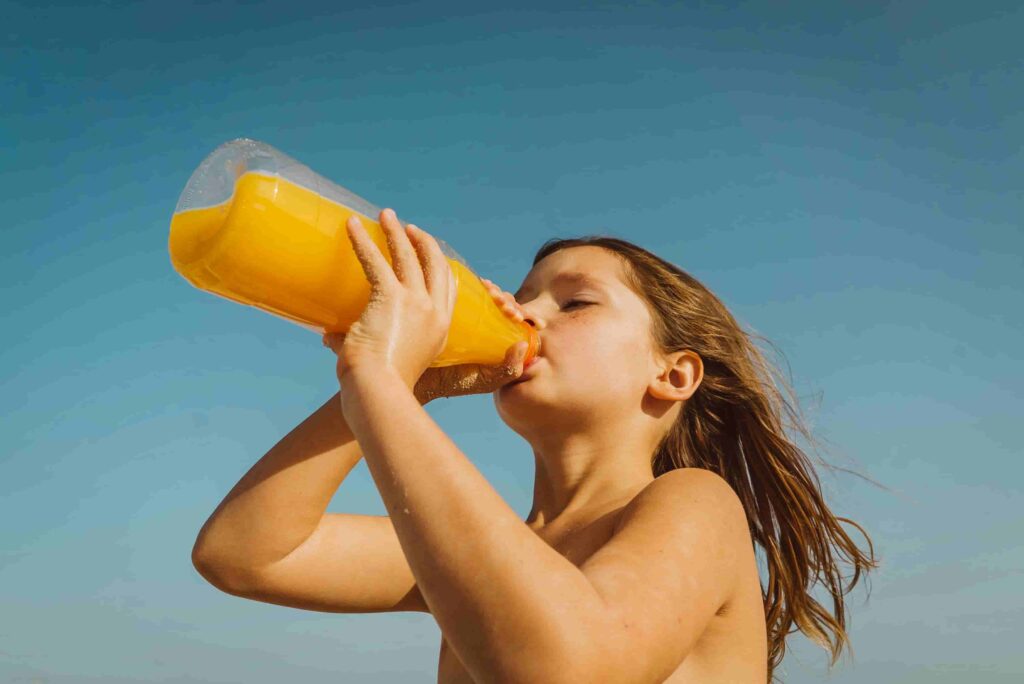
Section 1 Understanding Your Packaging Options
Orange juice packaging comes in two primary forms: plastic and glass. Each type offers unique benefits and challenges. Plastic bottles are lightweight and shatter-resistant, which reduces transportation costs and enhances convenience. However, glass is often preferred for those prioritizing premium quality and environmental sustainability. Glass bottles enhance the perceived value and taste integrity of the juice. They are also 100% recyclable, supporting a greener brand image.
Terms like orange juice bottle and juice bottles refer to containers for various liquids. An ‘orange juice bottle’ specifically holds orange juice, identifiable by its design and labeling. ‘Juice bottles’ cover a broader category, encompassing any drinkable liquid from fruits or vegetables. ‘Vape juice bottle’ is a niche term for small bottles designed for e-cigarette liquids. Choosing the right packaging affects product longevity, safety, branding, and consumer appeal. Understanding the attributes and advantages of each bottle type is essential for brands aiming to optimize their offerings and meet consumer expectations.
Section 2 The Case for Glass: Quality and Purity
2.1 Glass Juice Bottles Enhance Flavor and Freshness
Glass, a non-porous and completely air-impermeable material, offers exceptional benefits when it comes to storing beverages like orange juice. Unlike other materials, glass does not interact chemically with the contents it holds. This inert nature ensures that the juice remains untainted by external odors or tastes that could otherwise seep through more permeable materials. As a result, the natural flavor profile of the orange juice is meticulously preserved.
Furthermore, the impermeability of glass to air is crucial for maintaining freshness. Oxygen, which can alter the taste and reduce the nutritional quality of juice, is effectively barred from entering the bottle. This isolation helps to significantly extend the shelf life of the orange juice without the need for additional preservatives. It makes juice in glass bottle the top choices for those who value purity and longevity in their products.
The combination of flavor preservation and extended freshness not only satisfies consumer taste preferences but also supports health-conscious lifestyles. Opting for glass bottles can thus enhance both the appeal and the perceived quality of orange juice. It’s a favored choice for premium juice brands looking to differentiate themselves in a competitive market.
2.2 Health Benefits: BPA-Free and Chemical Leakage
Glass bottles provide significant health benefits. They are BPA-free and free from other harmful chemicals often found in plastics. BPA, commonly used in plastic manufacturing, can seep into beverages and pose health risks. These risks include hormonal disruptions and potential neurological effects. Since glass is inherently BPA-free, it eliminates these health concerns, making it a safer choice for packaging orange juice.
Additionally, glass is chemically inert. It does not react with the juice it holds or release any substances over time. This property is vital for maintaining the purity of the juice. It is particularly important for products labeled orange juice in glass bottle and orange juice glass bottle. These products appeal to health-conscious consumers who prioritize organic and natural ingredients.
By preventing chemical leaching, glass safeguards consumer health and preserves the juice’s integrity and taste. For brands that promote clean, healthy living, using glass packaging communicates a commitment to quality and consumer well-being. Thus, glass is an ideal choice for juice manufacturers who aim to maintain and promote the natural quality of their products.
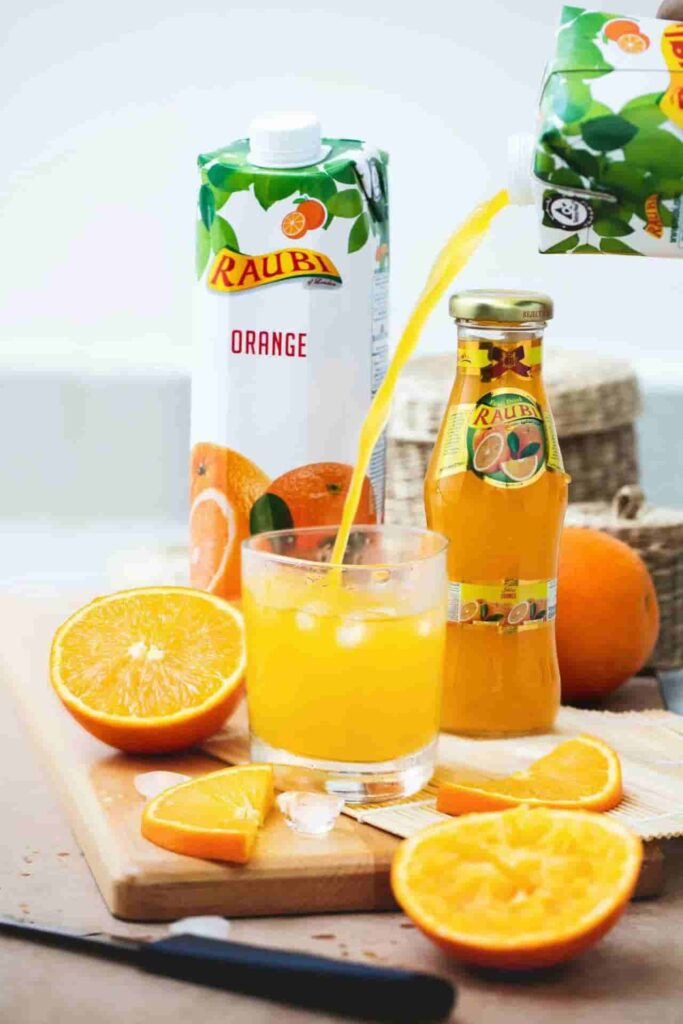
Section 3 Aesthetic and Branding Benefits
3.1 Elevating Brand Perception with Glass
Glass bottles offer a distinct aesthetic advantage. Their transparency enhances a brand’s image by showcasing the natural purity of the juice. This visibility builds consumer trust and supports premium pricing strategies. The clarity of glass also makes colors pop and details sharper. This is especially true for ‘juice bottle labels’. Labels on glass bottles appear more vibrant and visually appealing compared to those on plastic. Such vivid presentation attracts consumer attention, boosting shelf appeal.
Furthermore, glass conveys quality and craftsmanship. It signals to consumers that the brand values quality and is committed to delivering the best product possible. This perception can strongly influence purchasing decisions, favoring brands that use glass packaging. By using glass, brands can effectively differentiate their products in a crowded market. This helps them stand out and enhances their reputation as premium offerings in the beverage industry.
3.2 Customization and Decoration Flexibility
Glass provides vast opportunities for customization. Brands can experiment with unique shapes, which can make their products stand out on the shelves. Colored glass options add visual appeal and can align with brand colors or campaign themes. Embossing on glass bottles offers an added layer of customization. This technique allows brands to incorporate tactile elements into their packaging, enhancing the sensory experience for consumers. These customization options allow for the creation of distinctive packaging designs. For instance, orange juice small bottle designs can be tailored to target specific market segments, such as premium or artisanal markets. Similarly, green juice bottle packaging can utilize green tinted glass to emphasize natural and healthy product attributes.
This flexibility in design and decoration not only appeals to consumer aesthetics but also caters to specific preferences and trends. As a result, glass bottles can significantly enhance brand identity and consumer engagement, making products more attractive and competitive in the market.
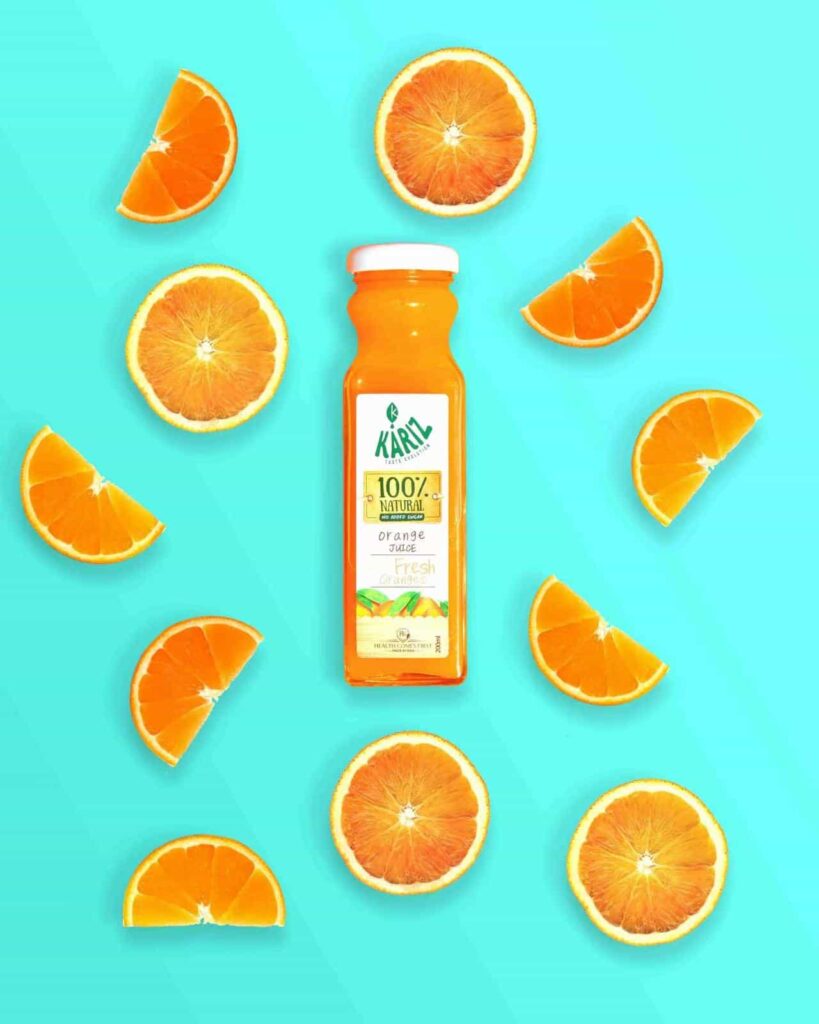
Section 4 Sustainability: A Commitment to the Environment
4.1 Glass Bottles: 100% Recyclable, Forever
Glass bottles excel in environmental sustainability. They are 100% recyclable and can be reused indefinitely without any degradation in purity or quality. This endless recyclability drastically minimizes their environmental impact. Every time a glass bottle is recycled, it conserves raw materials and reduces energy consumption, further shrinking its carbon footprint.
The robustness of glass recycling contrasts sharply with the lifecycle of plastic bottles. Plastics tend to degrade in quality each time they are recycled, which limits the number of times they can be reused. Over time, degraded plastics often end up as non-recyclable waste, contributing to environmental pollution.
4.2 Plastic’s Environmental Toll
The production and disposal of plastic bottles pose significant environmental challenges. The manufacturing of plastics is energy-intensive and releases substantial amounts of carbon dioxide into the atmosphere. Moreover, plastic waste is a major pollutant, often ending up in landfills or, worse, oceans and waterways where it can harm marine life.
Plastic’s durability becomes a liability as it can persist in the environment for hundreds of years, slowly fragmenting into microplastics that infiltrate ecosystems and food chains. These issues are exacerbated by relatively low recycling rates for plastics, driven by economic and technological constraints.
These environmental concerns make glass an appealing alternative for brands dedicated to sustainability. By opting for glass bottles, companies not only enhance their green credentials but also contribute to a more sustainable planet. This commitment can resonate deeply with eco-conscious consumers, further aligning the brand with the values of environmental stewardship.
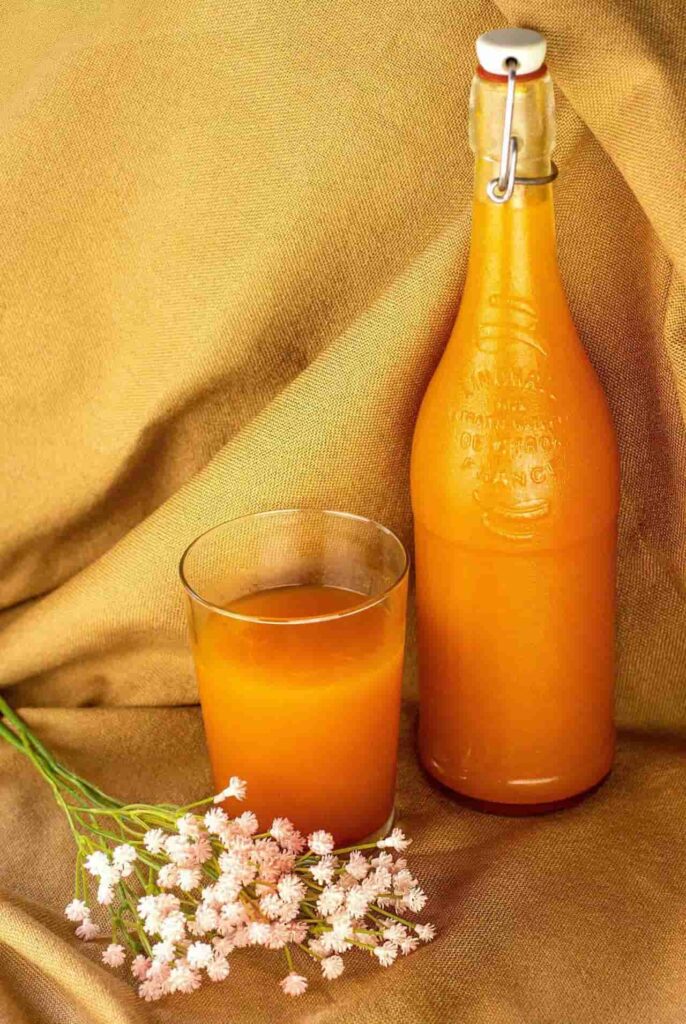
Section 5 Economic Considerations
5.1 Long-Term Cost Benefits of Glass
While the initial investment in glass packaging may be higher, its long-term cost benefits are compelling. Glass is highly durable, capable of withstanding numerous usage cycles without loss of quality or integrity. This durability translates to longer lifespans for juice bottles with lids and small juice bottles, allowing them to be reused repeatedly. Reusability not only conserves resources but also diminishes the need for frequent replacements, ultimately driving down long-term operational costs.
Moreover, glass bottles maintain the quality and safety of the juice inside, preserving flavor and preventing contamination. This assurance of quality helps maintain customer satisfaction and loyalty, which is crucial for brand reputation and repeat business.
5.2 Bulk Purchase and Wholesale Advantages
For juice producers, the ability to purchase packaging in bulk is a critical factor in cost management. Juice bottles wholesale provides a cost-effective purchasing option, particularly advantageous for producers using glass bottles. Buying mini orange juice bottles and other glass containers in large quantities can significantly reduce the per-unit cost.
Wholesale purchasing also facilitates better inventory management and planning, allowing producers to scale operations efficiently as demand increases. Additionally, the economies of scale achieved through bulk purchasing can be passed on to consumers in the form of competitive pricing, enhancing the market appeal of the products.
These financial efficiencies, coupled with the environmental and quality benefits of glass, make it an attractive choice for businesses aiming to optimize their production costs while maintaining high standards of product quality and sustainability.
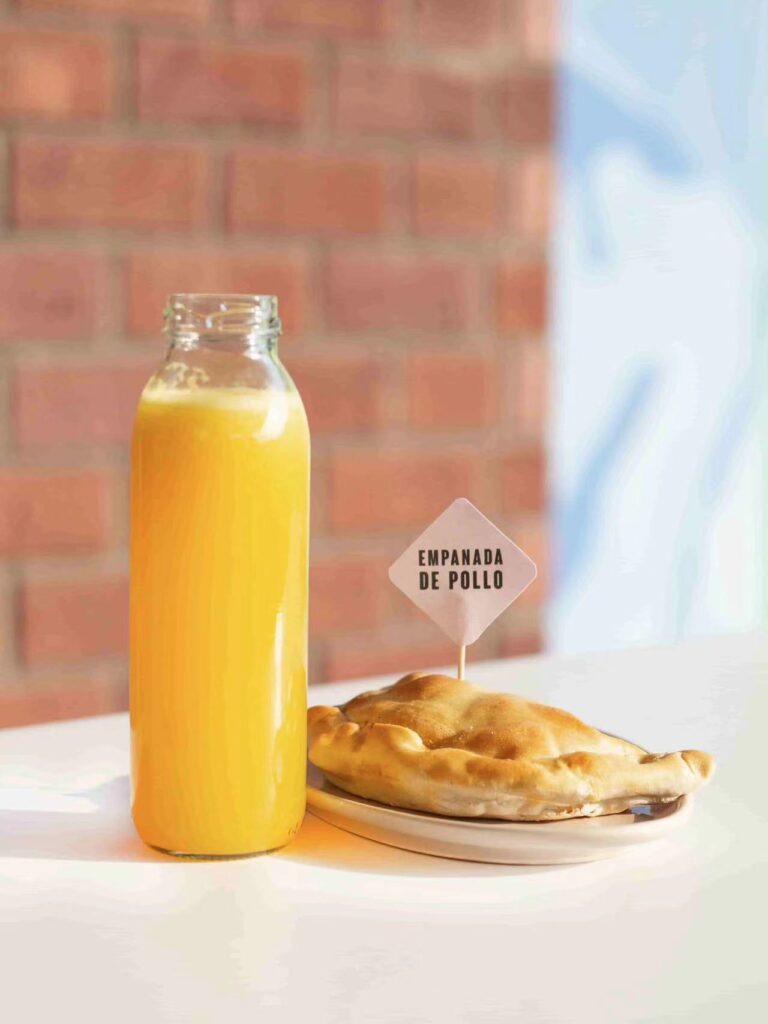
Section 6 Practical Challenges and How to Overcome Them
Glass packaging, while superior in many ways, is heavier and more fragile than plastic. These challenges can be effectively managed with the right strategies.
○ Innovative Packaging Designs: Technological advancements have led to the creation of lighter, more break-resistant glass bottles. Features like reinforced bases and stress-resistant shapes increase durability. This reduces breakage risks during handling and transport.
○ Enhanced Transportation Methods: Optimizing transport strategies is crucial for glass. Using shock-absorbent materials and partitioned crates protects bottles during transit. Employing pallet stabilizers and strategic stacking can prevent movement and further reduce breakage risks.
○ Quality Shipping Materials: High-quality shipping materials are vital. They should cushion impacts and prevent bottle contact. This investment protects the product and reduces financial losses from damaged goods.
○ Logistical Planning: Efficient distribution networks are essential. Working with transporters skilled in handling fragile items is beneficial. Route planning that minimizes transit times and handling can ensure bottles arrive in perfect condition.
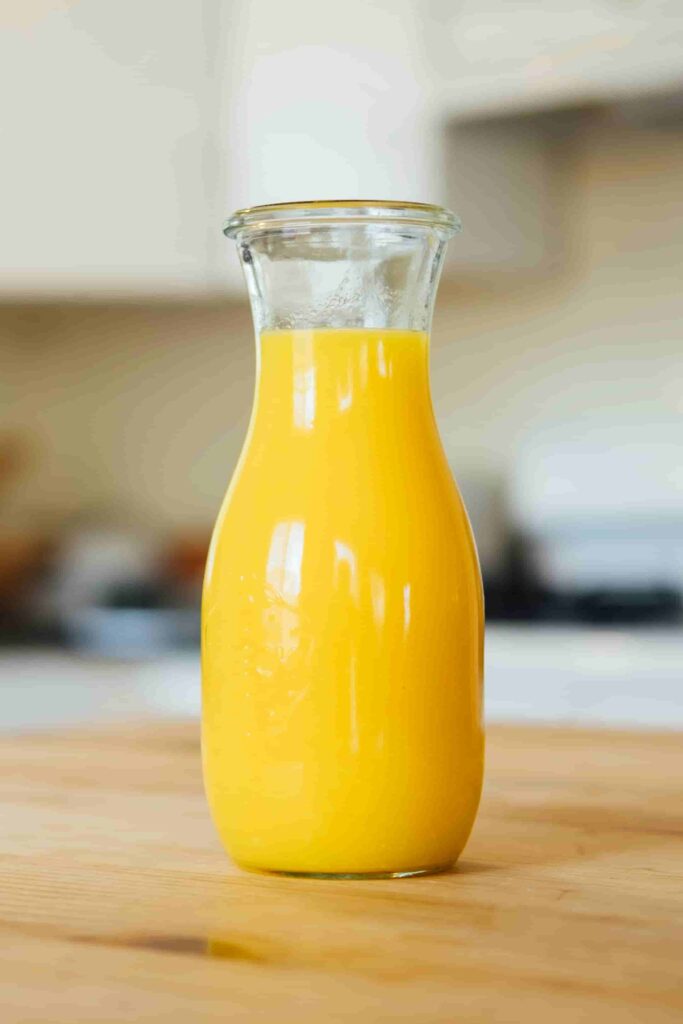
By tackling these challenges effectively, companies can enjoy the benefits of glass packaging. These measures demonstrate a commitment to quality and sustainability, enhancing appeal to both retailers and consumers.
Conclusion
In conclusion, glass bottles offer numerous advantages for orange juice packaging, from enhancing product quality and consumer health to supporting environmental sustainability and brand perception. While they present certain logistical challenges due to their weight and fragility, these can be effectively addressed with innovative packaging designs, improved transportation methods, and strategic logistical planning. By investing in these solutions, businesses can maximize the benefits of glass packaging, ensuring products not only maintain their integrity but also appeal strongly to eco-conscious consumers. Embracing glass bottles allows brands to stand out in a competitive market, demonstrating a commitment to quality and sustainability that resonates with today’s consumers.











